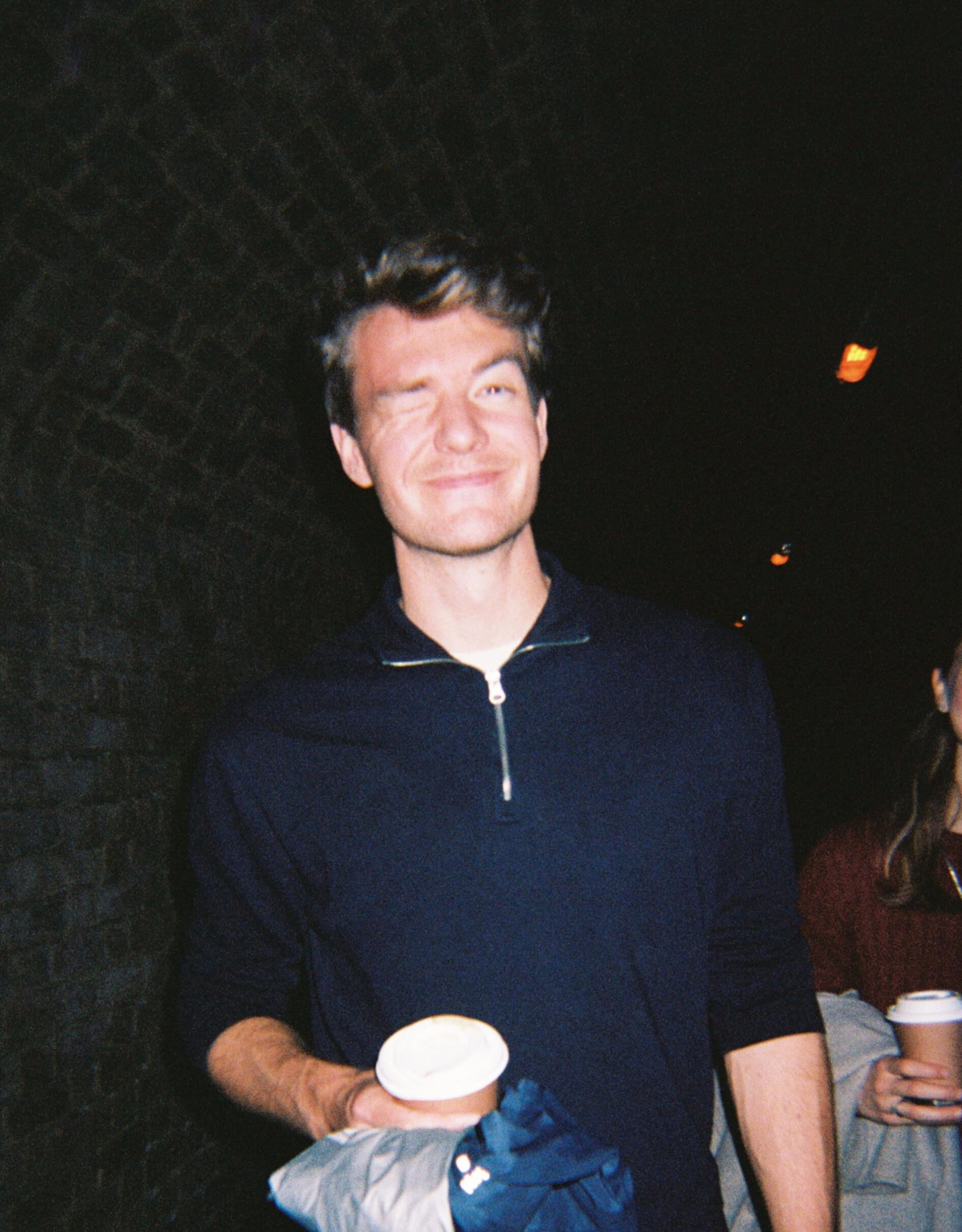Paal Fredrik Skjørten Kvarberg
I am a Doctoral Research Fellow at the University of Oslo.I do research on political judgment and measurement of social welfare and individual well-being.My PhD is part of the interdisciplinary Modeling Human Happiness project, which aims to develop models of well-being for appraising policy and measuring social progress. I am also a member of the Science and Democracy Research Group at the University of Oslo and in Oxford I am associated with the Uehiro Oxford Institute. Additionally I am the PI of UiO Political Forecasting Tournament.I have also written about how AI can be used to improve learning outcomes in educational settings, and I am involved in a project developing AI-based technology for learning and reasoning.Scroll down to learn more about my projects. My mail address is: paalfredrikskjorten(at)gmail.com


About
My research interests revolve around political decision-making and the practical conditions for informed public debate. My bachelor thesis addresses questions relating to political liberalism and deliberative democracy. My master's thesis explores whether there are rational answers to value questions, and defends a theory of practical rationality which seeks to vindicate an affirmative answer.After completing my master’s thesis, I studied social science and computational linguistics at the University of Oslo. In 2020, I launched a project to develop AI-based technology for deliberate practice and formative assessments, with support from the Norwegian Research Council. In 2022, I wrote an article outlining some relevant research, and in 2025 I published an opinion piece in Klassekampen on the topic of AI in schools. I am involved in several projects to explore the accuracy of AI-generated feedback on practice assignments in law and critical thinking (ex.phil). In one of these projects my co-workers and I think about how to improve reasoning and decision-making using formal ontologies and Bayesian networks. I recently wrote a paper about this as a submission to an essay competition.The main objective of my PhD research project is to identify the conditions for a valid and legitimate public evaluative framework for appraising policy and social progress. My hypothesis is that the best method for satisfying these conditions is to develop a national welfare index based on research into well-being and the values of citizens. A secondary objective of the PhD project is to uncover the conceptual and causal structure of well-being. My hypothesis is that objective features of a person can explain what it means for that person to have positive experiences and goals that are suitable for them.In 2024, a team of researchers and I received a grant to launch a political forecasting tournament that investigates the link between predictive accuracy and political decision-making. In this experimental research project, we test whether research-based methods for improving foresight can be easily learned and applied without extensive training and effort. We also test the accuracy of AI-generated forecasts, and the relevance of forecasting questions to policy debates. Here is an interview with me about the project in Morgenbladet.I spend most of my time doing research or working on projects. However, I also enjoy trail running, skiing, and curating Spotify playlists. These hobbies have grown into projects too. Mood Manipulator is a project to develop music playlists for any occasion. Jotunheimen 35mm is a project to document mountains in Jotunheimen with my Nikon L35 Ad2 35mm camera.


Research
A selection of writing
Intervju om UiO politisk prediksjonsturnering, interview in Morgenbladet, Jan 28, 2025.Elevens Fremtid, opinion piece in Klassekampen, July 22, 2025.Innspill til Nasjonal livskvalitetsstrategi (Policy note to the Norwegian government) with Aksel Braanen Sterri and Langsikt, Regjeringen.no, Feb 29, 2024.Two Directions for Research on Forecasting and Decision-Making, EA Forum, Mar 11, 2023.Digitalisering og aktiv læring for språk og argumentasjon, Norsk Filosofisk Tidsskrift, May 30, 2022.Liberalismens grenser, Debattinnlegg i Morgenbladet, April 04, 2019.On Alienation: A Reconstructive Analysis of the Concept of Alienation, Filosofisk Supplement, Jan 1, 2019.
Public Models of Welfare
This dissertation consists of three articles and an extended introduction. Its overarching aim is to develop and defend a model of well-being suitable for public welfare appraisal.The introduction traces the history of welfare appraisal in the Western tradition, with particular attention to the concerns that have motivated the rise of the dominant subjective paradigm in the policy-oriented sciences of human welfare.On the basis of an interpretation of these concerns, developed within a practically oriented theoretical framework, I argue that an adequate public model of welfare should offer a determinate account of individual well-being that can be represented on an interpersonally comparable cardinal scale, and that is aligned with citizens’ values in the sense that it accords with their considered judgements about what welfare consists in.
UiO Political Forecasting Tournament
Despite a wealth of findings on the topic of prediction, the relationship between judgemental forecasting and political decision-making is poorly understood, and there is a dearth of knowledge concerning the extent to which the quality of political judgement can be improved by learning and applying the best methods.With support from UiO:Democracy, the Science and Democracy Research Group is hosting a forecasting tournament to investigate the relationship between forecasting and decision-making. An important goal is to find out whether the quality of political judgement can be improved with evidence-based methods.Using a novel experimental tournament design, we are testing an intervention that encapsulates methods that have been shown to be effective in earlier studies.

Other
Mood Manipulator
Here are some of my spotify playlists.The Jungle
Space Odyssey
Strong Feelings, Groovy Rhythms
Into the Forest
Temperate Tunes
Hot Fusion
Thumpin'
Lun Nordisk Disko
Paal's juleliste
Drømmen
Ye
Oslosommer
Oslodisko
Slaraffenland
Under vann
Bølgene på stranda
Unruly waters
Midt i Østen
Androgyne Vibber
Franske vibber
Slangetemmeren

Towards a Functional Model of Health and Disorder
This article develops and defends a functional model of health and disorder that is consistent with the theoretical commitments of the strong biomedical model. On the proposed view, the health of an individual at a time is explained by the overall functioning of her traits, organs, and organ systems, understood in terms of their selected effects. Medical disorders are specific dysfunctions in bodily mechanisms that typically result in characteristic patterns of health impairment. I sketch a quantitative framework in which the severity of a disorder is explained by its expected direct effects on this functional profile over time. Disorder on this account has both a dysfunction and a harm component, but the harm component is explicated in naturalistic terms by appeal to an independently motivated model of health. The aim is not to replace existing nosologies or health related quality of life measures, but to offer a worked out theoretical proposal that shows how the latent commitments of the medical model can be made more precise. I argue that, if further developed and empirically constrained, this unified model has a reasonable prospect of satisfying familiar criteria of descriptive and practical adequacy and of providing a principled basis for conceptual validation of nosologies, measures and metrics.
Jotunheimen 35mm
Pictures of mountains in Jotunheimen from different angles taken with a Nikon L35 Ad2 camera. Sometimes with GPX files.
Store Soleibotntinden

35mm picture of Store Soleibotntind from the foot of Lavnostindan. Here is a GPX file from a summer hike over Suleibotntindane. The hike requires some easy climbing.

35mm picture of Store Soleibotntind from the foot of Lavnostindan.
Tjønnholstinden

35mm picture of Tjønnholstind from the ridge, close to the summit. Here is a GPX file from a hike starting at Valdresflye, going over Høgdebrotet to Tjønnholstind and back.



35mm picture of Høgdebrotet, Tjønnholstind, Skarvflyløyfttinden, Austre Leirungstinden, and Knutsholstindane from the top of Surtningssue.
Store Smørstabbtinden

35mm picture of Smørstabbtindane from Storbreatinden.
Store Veotinden

35mm picture of Store Veotinden from the summit of Styggehøe. Here is a GPX file for a hike going over Store Veotindan from Glitterheim, which continues over Surtningssue and back to Glitterheim.

35mm picture of Veotindene and Surtningssue from the biking trail to Glitterheim.
Storebjørn

35mm picture of Storebjørn from the foot of the mountain. Here is a GPX file for a rando hike to Storebjørn from Leirvassbu.

35mm picture of Storebjørn from the foot of the mountain.
Tverrbotntind

35mm picture of Tverrbotntindane from Tunga, by Søre Illåbrean.

35mm picture of Tverrbotntindane from Illåskardet, by Søre Illåbrean.
35mm picture of Tverrbotntindane from Bukkehøe.

35mm picture of Tverrbotntindane from Sauhøe
Skardstind

35mm picture of Skardstind and Nåle from Skardbakken.

35mm picture of Skardstind, Nåle, Ymmelstind and Storjuvtind from Svarttinden.

35mm picture of Skardstind and Nåle from Bukkehøe.
Surtningssue

35mm picture of Surtningssue and surrounding mountains, from Høgdebråtet. June 2025.

35mm picture of Surtningssue from the ridge. July 2025.

35mm picture of Surtningssue from the Valdresflye. June 2025.

35mm picture of Surtningssue from Høgdebrotet. September 2025.
Høgdebrotet

35mm picture of Høgdebrotet from the ridge. Here is a GPX file for a hike to Høgdebrotet from Valdresflye.



35mm picture of Høgdebrotet, Tjønnholstind, Skarvflyløyfttinden, Austre Leirungstinden, and Knutsholstindane from the top of Surtningssue.
Skagsnebb

35mm picture of Skagsnebb from the ridge of Veslfjelltind. Here is a GPX file for a randonnee trip to Veslfjelltind, Skagsnebb and Hurrbreatind. The climb to Skagsnebb in winter requires slightly technical climbing.

Memerutind

35mm picture of Store Memerutind (to the left) from the top of Veotind.

35mm picture of Memerubrean and Memerutindane from Surtningssue. July 2025.
Ringstind

35mm picture of Store Ringstind from the top of Store Soleibotntind. June 2025.
Hellstugutind

35mm picture of Hellstugutindane and Hellstugubrean. September 2025.
Urdadalstinden

35mm picture of Urdadalstinden from Visdalen. September 2025.

35mm picture of Urdadalstinden from Visdalen. September 2025.
Kyrkja

35mm picture of Kyrkja from Visdalen. September 2025.




















